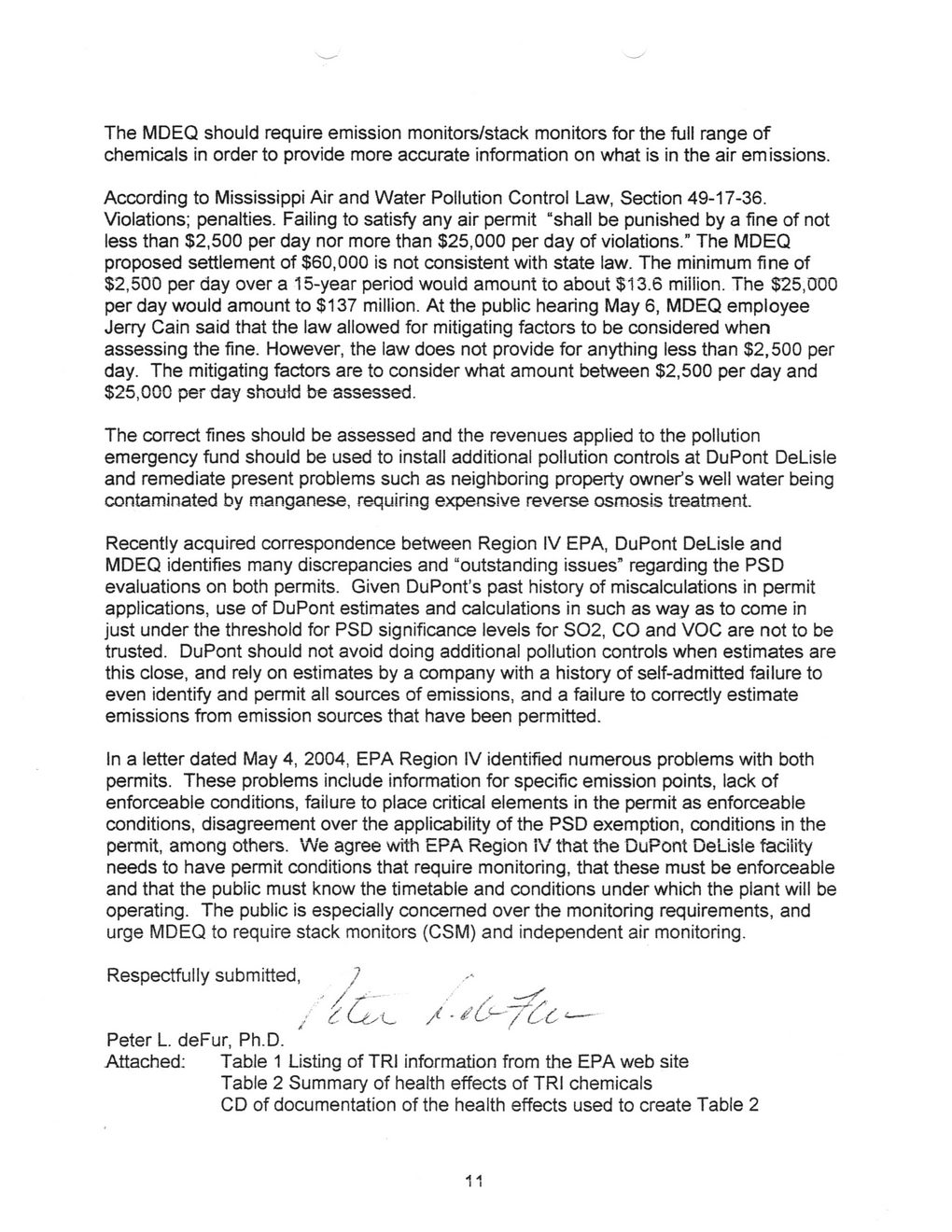This text was obtained via automated optical character recognition.
It has not been edited and may therefore contain several errors.
The MDEQ should require emission monitors/stack monitors for the full range of chemicals in order to provide more accurate information on what is in the air emissions. According to Mississippi Air and Water Pollution Control Law, Section 49-17-36. Violations; penalties. Failing to satisfy any air permit “shall be punished by a fine of not less than $2,500 per day nor more than $25,000 per day of violations.” The MDEQ proposed settlement of $60,000 is not consistent with state law. The minimum fine of $2,500 per day over a 15-year period would amount to about $13.6 miiiion. The $25,000 per day would amount to $137 million. At the public hearing May 6, MDEQ employee Jerry Cain said that the law allowed for mitigating factors to be considered when assessing the fine. However, the law does not provide for anything less than $2,500 per day. The mitigating factors are to consider what amount between $2,500 per day and $25,000 per day should be assessed. The correct fines should be assessed and the revenues applied to the pollution emergency fund should be used to install additional pollution controls at DuPont DeLisle and remediate present problems such as neighboring property owner’s well water being contaminated by manganese, requiring expensive reverse osmosis treatment. Recently acquired correspondence between Region IV EPA, DuPont DeLisle and MDEQ identifies many discrepancies and “outstanding issues” regarding the PSD evaluations on both permits. Given DuPont’s past history of miscalculations in permit applications, use of DuPont estimates and calculations in such as way as to come in just under the threshold for PSD significance levels for S02, CO and VOC are not to be trusted. DuPont should not avoid doing additional pollution controls when estimates are this close, and rely on estimates by a company with a history of self-admitted failure to even identify and permit all sources of emissions, and a failure to correctly estimate emissions from emission sources that have been permitted. In a letter dated May 4, 2004, EPA Region IV identified numerous problems with both permits. These problems include information for specific emission points, lack of enforceable conditions, failure to place critical elements in the permit as enforceable conditions, disagreement over the applicability of the PSD exemption, conditions in the permit, among others. We agree with EPA Region IV that the DuPont DeLisle facility needs to have permit conditions that require monitoring, that these must be enforceable and that the public must know the timetable and conditions under which the plant will be operating. The public is especially concerned over the monitoring requirements, and urge MDEQ to require stack monitors (CSM) and independent air monitoring. Respectfully submitted, / Peter L. deFur, Ph.D. Attached: Table 1 Listing of TRI information from the EPA web site Table 2 Summary of health effects of TRI chemicals CD of documentation of the health effects used to create Table 2

Dupont Air Hearings Sierra-Club-Recommendations-(12)